
On Sunday June 27th, 2021, from 1-6 pm ET, NSS is hosting Interactive ISDC Sunday, an event that brings participants into contact with leading space experts in an interactive format. These discussions are challenging and stimulating. They are not short, summarized, or condensed. We think you will find the day exciting!
What: ISDC Sunday Event
When: June 27th, 2021 @ 1PM-6PM ET
Where: Zoom, link sent in confirmation email
Cost: $50, members 10% off
Part I: Perspectives on Artemis – 1PM ET
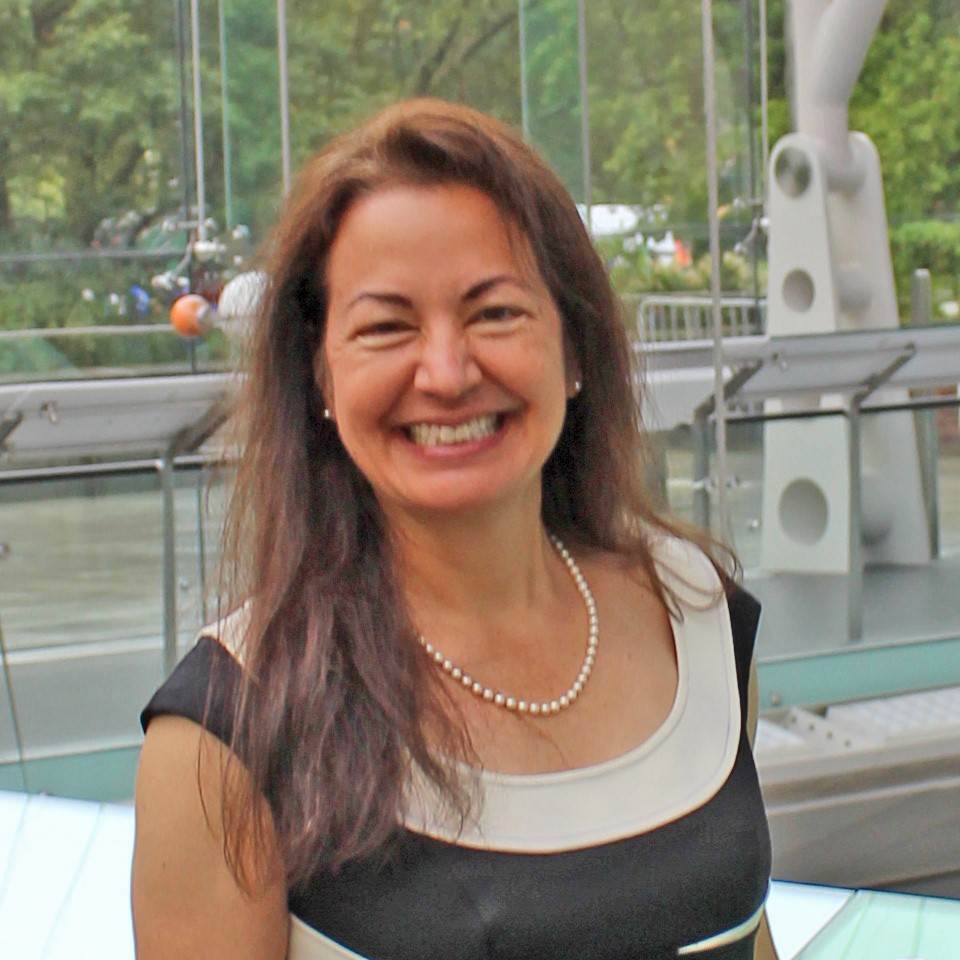
Michelle L.D. Hanlon [Moderator]
Michelle L.D. Hanlon is the President of the National Space Society and mentor to the National Space Society Legal Fellows program. She is Co-Director of the Air and Space Law Program at the University of Mississippi School of Law, Editor-in-Chief of the Journal of Space Law, the world’s oldest law journal dedicated to the legal problems arising out of human activities in outer space, and the Faculty Advisor for its sister publication, the Journal of Drone Law and Policy. Michelle is a Co-Founder and President of For All Moonkind, Inc., a nonprofit corporation that is the only organization in the world focused on protecting human cultural heritage in outer space. In this capacity, she was instrumental in the development of the recently enacted One Small Step Act. For All Moonkind has been recognized by the United Nations as a Permanent Observer to the United Nations Committee on the Peaceful Uses of Outer Space. Michelle received her B.A. in Political Science from Yale College and her J.D. magna cum laude from the Georgetown University Law Center. She earned her LLM in Air and Space Law from McGill University.
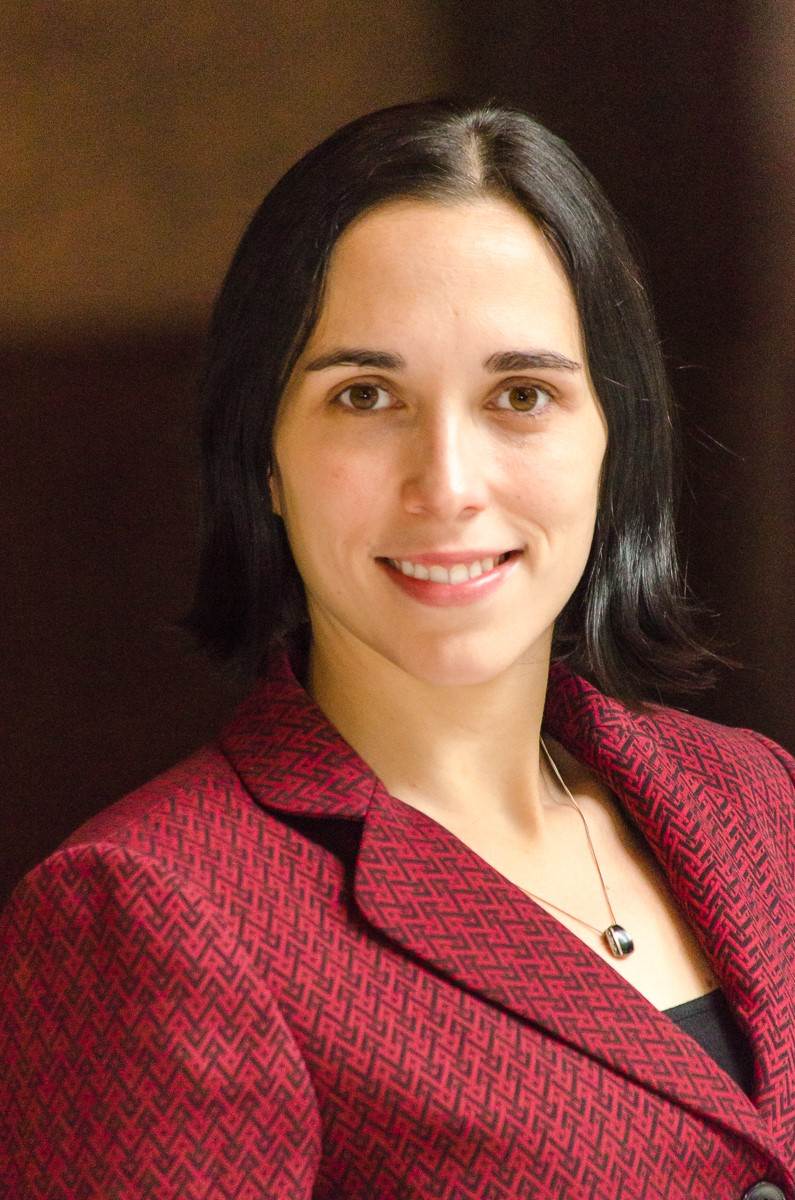
Dr. Andrea Harrington
Dr. Andrea Harrington currently serves as the Interim Dean of Space Education at Air University. Prior to her current role, she served as Chair of the Department of Spacepower and Director of the Schriever Space Scholars concentration at Air Command and Staff College, where she is an Associate Professor of Military and Security Studies. She serves as a member of the editorial board for the McGill Annals of Air and Space Law, New Space Journal, the Space Force Journal, and the American Bar Association publication The Air and Space Lawyer. Dr. Harrington previously served as the Associate Director of the LLM Program in Air and Space Law at the University of Mississippi and has served as Associate Chair for the Policy, Economics, and Law Department for the International Space University’s Space Studies Program. She holds a DCL and LLM from the McGill University Institute of Air and Space Law, a JD from the University of Connecticut School of Law, an MSc in European Politics and Governance from the London School of Economics, and a BA in International Relations and History from Boston University. She is licensed to practice law in Massachusetts.

Memme Onwudiwe
Memme Onwudiwe is fascinated by AI, space technologies, and innovation on the African continent. As a student at Harvard Law Memme helped to build Evisort, a legal AI start-up, and founded/chaired Harvard’s Legal Technology Symposium – he also served as President of the Harvard African Law Association and co-Editor-in-Chief of Harvard Kennedy School’s Africa Policy Journal where he met & interviewed leaders from across Africa. Memme’s piece “Africa and the Artemis Accords”, co-authored with Harvard Law classmate Kwame Newton, was published in the peer-reviewed ‘New Space: Journal on Space Entrepreneurship and Innovation’ – it takes a critical look at strategies African Nations should take to be relevant in the new space era.
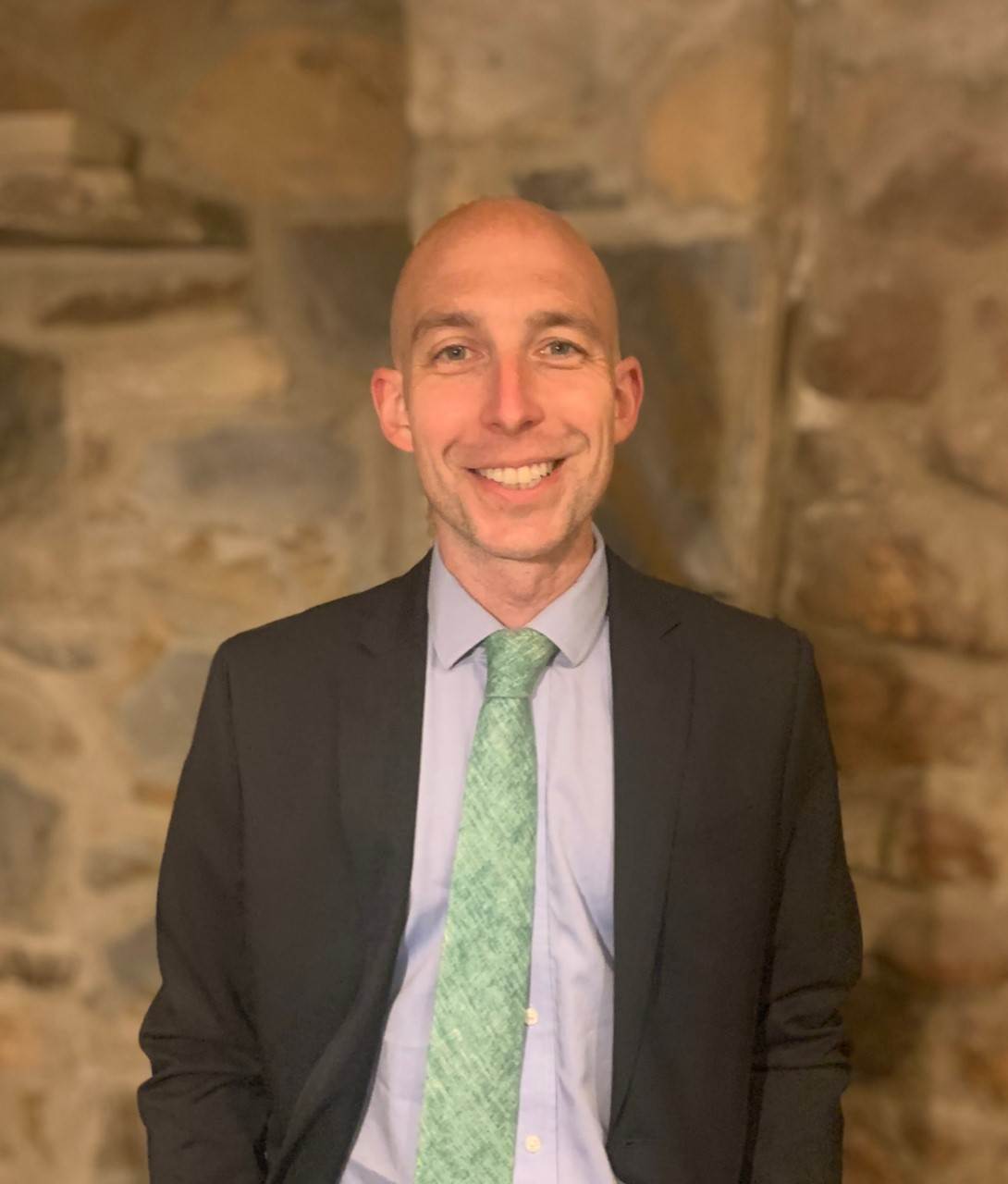
Gabriel Swiney (JD, BCL)
Gabriel Swiney (JD, BCL) is an Attorney Adviser at the United States Department of State. He advises senior Department officials on issues relating to international space law and policy, and provides guidance to the National Space Council, NASA, and other agencies as well. Gabriel Swiney leads the United States delegation to the Legal Subcommittee of COPUOS, and he was one of the primary architects and negotiators of the Artemis Accords. He was a member of the team that negotiated a series of agreements to build and operate the Gateway station in lunar orbit, and represents the United States Government in a range of international space fora. (JD, BCL) is an Attorney Adviser at the United States Department of State. He advises senior Department officials on issues relating to international space law and policy, and provides guidance to the National Space Council, NASA, and other agencies as well. Gabriel Swiney leads the United States delegation to the Legal Subcommittee of COPUOS, and he was one of the primary architects and negotiators of the Artemis Accords. He was a member of the team that negotiated a series of agreements to build and operate the Gateway station in lunar orbit, and represents the United States Government in a range of international space fora.
Part II: The Debate: Is Space Settlement a Good Idea? – 3PM ET
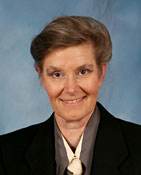
Anita Gale [Moderator]
Anita Gale, currently the NSS CEO, was a Senior Project Engineer in Space Shuttle Payload & Cargo Integration, for The Boeing Company in Houston (retired). Her professional career started on the Space Shuttle program in 1974, for Rockwell International in Downey, California. She provides conceptual designs for cargo integration on future launch vehicles, contributes to R&D for Shuttle upgrades and future missions of both reusable and expendable launch vehicles, and develops and fosters process improvements. She holds three US patents on launch vehicle payload interface standardization and containerization, which are essential technologies for reducing future vehicle processing costs and schedules. In 1984, Anita co-founded Space Settlement Design Competitions, industry simulation games that engage high school students in designing future space settlements. These events are complementary to the NASA Ames Space Settlement Contest co-sponsored by NSS. The Competitions have evolved into an International activity involving over 1000 students each year on six continents. Anita’s work with Space Settlement Design Competitions was recognized by NSS in 2008 with presentation of a Space Pioneer Award, in the Category of Educator. Anita has been a member of NSS and both precursor organizations, since the L5 Los Angeles Chapter (OASIS) was founded in the late 1970s. She is a member of the NSS Space Settlement Advocacy Committee, and chaired Space Settlement Sessions for ISDC in 2007 and 2008. Anita is an active member of two professional engineering organizations, the American Institute of Aeronautics and Astronautics (AIAA) and Society of Women Engineers (SWE). She is a member of the AIAA Space Colonization Technical Committee, regularly chairs technical conference sessions on space settlements, and has written technical papers about space settlement requirements, designs, and the triggering events that will cause space settlements to be built. Anita earned both a Bachelor of Science and Master of Science in Aeronautics and Astronautics from the University of Washington, and a Certificate in Systems Engineering from Cal Poly Pomona.
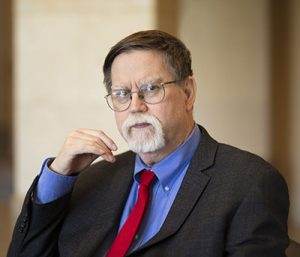
Mark Hopkins
Mark Hopkins is Chief Executive Officer Emeritus for the National Space Society (NSS). Mark Hopkins has a BS in economics from the California Institute of Technology, an MA in economics from Harvard University, and is a former Rand Corporation economist. He has written numerous publications concerning space economics and is responsible for most of the early economic studies of space settlements, including the economic study in the NASA publication Space Settlements: A Design Study. He became formally active in 1972, when he co-founded and later served as President of the Harvard-Radcliffe Committee for a Space Economy, dedicated to the goal of the large scale economic development of space. In 1975 Hopkins strongly encouraged the founding of the L-5 Society as a nucleus of a new social movement, and joined the L-5 Board of Directors at the Society’s first election. Hopkins first proposed the concept of the National Space Society (NSS) and was one of the two chief negotiators that created the merger of the L-5 Society and the National Space Institute to create the National Space Society in 1987. He has served continuously as an Officer and or Member of the Board of Directors of L-5 and NSS for thirty years (24 of those years as an Officer). Hopkins built and led the political efforts of L-5 and NSS for 18 years through 1997. He founded Spacecause and Spacepac and served as President of Spacecause for 10 years and Chairman of Spacepac for 16 years. Hopkins played a significant role in the successful effort to defeat the anti-private-enterprise Moon Treaty. Today Hopkins is particularly concerned with developing an optimal strategy for the Space Movement and the question “What is the best way to drive humanity into space?
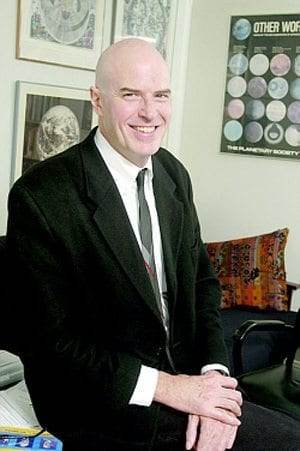
Daniel H. Deudney
Daniel H. Deudney is Professor of Political Science at Johns Hopkins University. He has published extensively on international theory, world political theory and contemporary global issues (environment, space, and nuclear). He has also published extensively with G. John Ikenberry on the liberal international order and the end of the cold war. His book, Bounding Power: Republican Security Theory from the Polis to the Global Village (Princeton, 2007) received the Book of the Decade Award (2000-2009) from the International Studies Association. His most recent book is Dark Skies: Space Expansionism, Planetary Geopolitics and the Ends of Humanity (Oxford, 2020).
Part III: The military aspects of DARK SKIES: Do they make sense from a warfighter’s perspective? – 4PM ET
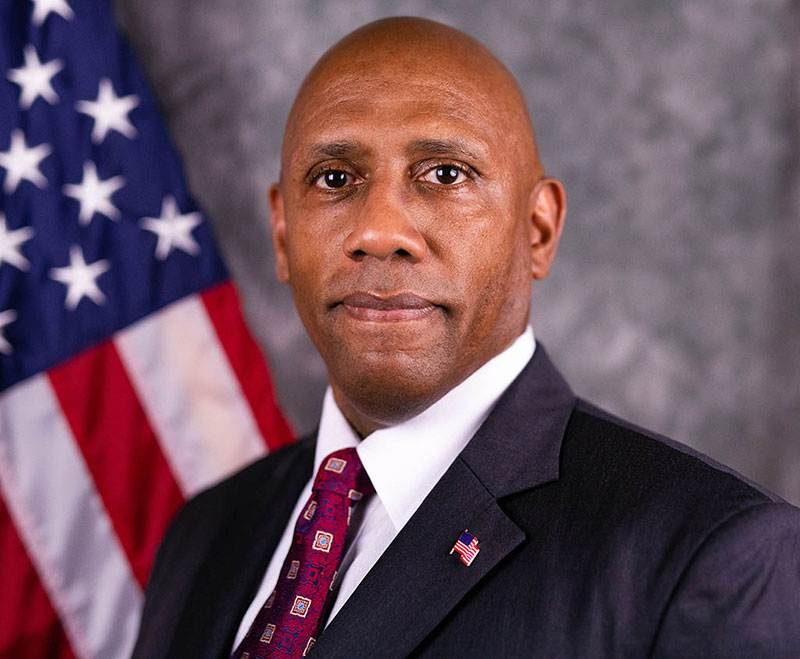
Karlton Johnson [Moderator]
Karlton D. Johnson (Colonel, United States Air Force-Retired) is the Chairman of the National Space Society’s Board of Governors. In this capacity, he provides overall senior executive leadership to enhance the effectiveness and performance of the Board of Governors in support of the Society’s goals, imparts advice and guidance to the Board of Directors to enhance its conduct of business operations, and serves as the primary spokesperson for the Board of Governors. A senior executive, decorated combat veteran and respected visionary leader with over 31 years of subject matter experience, Mr. Johnson brings a wealth of expertise in several areas to include strategic leadership, partnership creation, organizational excellence, space operational support, and cyber security. In 2014, he retired from Active Duty after 26 years of honorable service where he held a variety of challenging senior leadership and command positions within the Air Force. Over his long and distinguished career, he has successfully developed solutions that enabled business transformation globally for large, multinational organizations, led international development of aerospace and defense business partnerships in Fortune 500 companies, and managed resource asset portfolios up to $5.5B. Mr. Johnson has served in leadership positions on numerous Boards, and he also holds several Master’s Degrees and executive Graduate Certifications from various institutions to include George Washington University, National Defense University, West Virginia University, ISACA and the U.S. Government
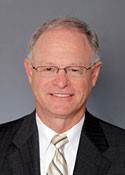
Stan Rosen
As an Air Force officer, Dr. Rosen held scientific, engineering, program management, strategy, and policy development positions, and worked on a wide variety of NASA, Air Force and classified space activities. He also held various executive positions at Hughes Electronics and Boeing Space Systems, and served as Chairman of the California Space Authority. He is currently Professor of Program Management at the Defense Acquisition University (DAU). Dr. Rosen earned a BS from the U.S. Air Force Academy, a MS in Aerospace Engineering from the Massachusetts Institute of Technology, an MS in Systems Management from the University of Southern California, and a Doctor of Engineering degree from the University of Stuttgart, Germany.
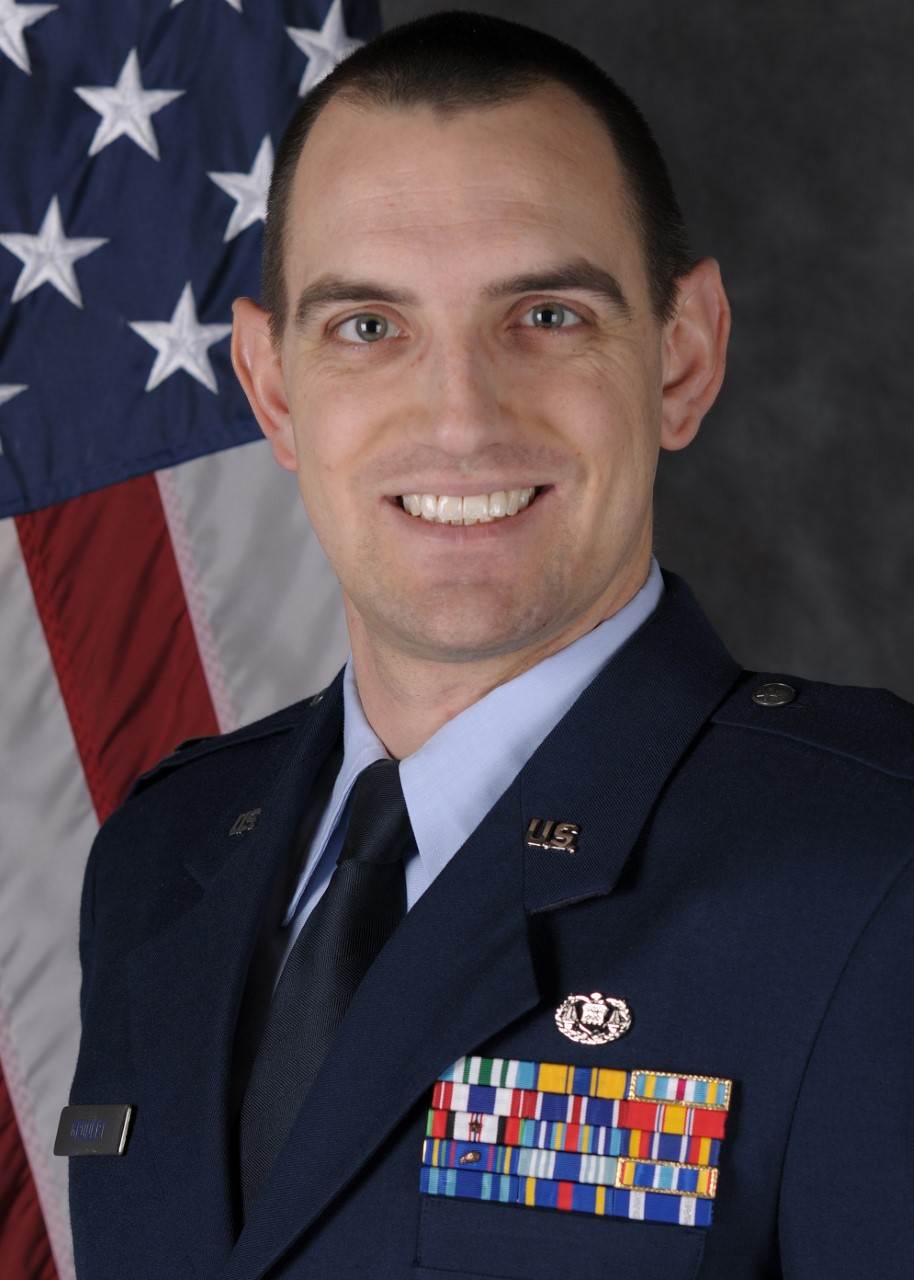
Major Jeremy Grunert
Major Jeremy Grunert is an attorney and officer in the Air Force JAG Corps. He is currently serving as an Assistant Professor of Law at the United States Air Force Academy, where he is the course director for the Academy’s Space Law course. Maj Grunert earned his LL.M. in Air & Space Law from the University of Mississippi School of Law, and previously served as an Assistant Staff Judge Advocate and prosecutor at RAF Lakenheath, United Kingdom, and Incirlik Air Base, Turkey. Maj Grunert also serves as the Executive Editor of the Journal of Space Law and is the author of a number of journal articles, including Grounding the Huma: The Legality of Space Denial and (Potential) American Interference in the Iranian Space Program (81 A.F. L. Rev. 75 (2020)). Maj Grunert is participating in this panel in his personal capacity; all views expressed are his own and do not reflect the official views of the U.S. government, Department of Defense, or Department of the Air Force.”
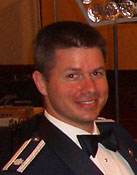
Lt Col Peter Garretson
Lt Col Peter Garretson, USAF, is a former member of the NSS Board of Directors. He came into contact with the space advocacy community while serving as the Chief of Future Technology Branch for the headquarters of the Air Force. In that context he reviewed the most promising and far-term concepts, and participated in forums like the commercial Space Resources Round Table, the AIAA Space Colonization and Space Resources Technical Community, and the National Defense University’s Space Power Theory study. That exposure led him to formulate a vision and national grand strategy for space development which could only be described as O’Neilian. Lt Col Garretson brought the concept of Space Solar Power to the Department of Defense. He was one of the shepherds and principal authors of the Department of Defense report, Space-Based Solar Power As an Opportunity for Strategic Security, which catalyzed the partnership of several space advocacy groups to form the Space Solar Alliance for Future Energy (SSAFE). He is also the creator of the NSS Planetary Defense Library. He writes: “At the top of my agenda is survival of humanity’s first outpost, Earth: ensuring that our nation’s responsible entities are properly assigned and begin work on defense against asteroids and comets. This would simultaneously give us the capability to survey and exploit their resources and enable development of the tremendous economic and security opportunities, including Space-Based Solar Power which promises a way to heal our planet and lift many out of poverty with clean, renewable solar energy.” For more information see his website at petergarretson.com
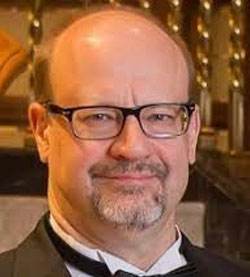
Dale Skran
Dale Skran worked 17 years with Bell Labs (AT&T, Lucent Technologies) and continued his career at several companies including Ascend Communications (VP of Enterprise Engineering), Sonus Networks (Director of Engineering), and CMWare (Founder, CEO, COO, and VP of Engineering). He was also a negotiator/ manager (Rapporteur) at the UN (International Telecommunication Union) where he led the development of international Internet standards for video conferencing and voice services (VoIP). Dale has a BS in Electrical Engineering from Michigan State University and an MS in the same from the University of Michigan. Dale currently holds the following NSS leadership positions: Senior Vice President/Chief Operating Officer, Co-Chair of the Bylaws Committee, Chair of the Strategic Planning Committee, and At-large Board Member
Part IV: The civilian aspects of DARK SKIES: Does the political science make sense? – 5PM

Michelle Hanlon [Moderator]
Michelle L.D. Hanlon is the President of the National Space Society and mentor to the National Space Society Legal Fellows program. She is Co-Director of the Air and Space Law Program at the University of Mississippi School of Law, Editor-in-Chief of the Journal of Space Law, the world’s oldest law journal dedicated to the legal problems arising out of human activities in outer space, and the Faculty Advisor for its sister publication, the Journal of Drone Law and Policy. Michelle is a Co-Founder and President of For All Moonkind, Inc., a nonprofit corporation that is the only organization in the world focused on protecting human cultural heritage in outer space. In this capacity, she was instrumental in the development of the recently enacted One Small Step Act. For All Moonkind has been recognized by the United Nations as a Permanent Observer to the United Nations Committee on the Peaceful Uses of Outer Space. Michelle received her B.A. in Political Science from Yale College and her J.D. magna cum laude from the Georgetown University Law Center. She earned her LLM in Air and Space Law from McGill University.
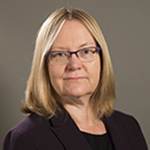
Claudena Skran
Claudena Skran is a Professor of Government at Lawrence University in Appleton, Wisconsin. Her research and writing focuses on the role of international organizations in providing emergency relief in post-conflict societies. She is also the founder of Kidsgive, a scholarship program for children in Sierra Leone, where she spent six months studying post-conflict development on a Fulbright Scholarship. She also has conducted field research in El Salvador, Mexico and Belize. She has written Refugees in Interwar Europe: The Emergence of a Regime for Oxford University Press. A 1983 Rhodes Scholar, she holds a DPhil and MPhil in international relations from the University of Oxford, and a BS in Social Science from Michigan State University.
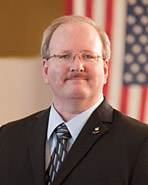
Jeff Greason
Jeff Greason is a commercial space entrepreneur and innovator with over 20 years of experience in all aspects of the commercial space transportation industry. He is chief technologist of Electric Sky and chairman of the board of Tau Zero Foundation. At Electric Sky, he has invented technologies for the transmission of wireless power and its use for propulsion and other purposes. At the not-for-profit Tau Zero Foundation, he has identified high-leverage technologies for advanced space propulsion projects applicable to interstellar flight and solar system exploration. Jeff was a founder of XCOR Aerospace and served as its CEO from 1999 to early 2015, after which he served as chief technologist until late 2015. There, he led the development of many different reusable rocket engines and two rocket-powered piloted aircraft, demonstrating $900/flight operating cost and an operational tempo of seven flights in one day, with 66 total flights. Prior to XCOR, he was the team lead at Rotary Rocket for engine development, and an engineering manager in computer processor development at Intel. Jeff has been active in the U.S. regulatory regime for commercial space for nearly 20 years, initially providing public comments on FAA regulations, then membership and leadership in COMSTAC, its working groups and full committee. In 2003, Greason testified at the joint House/Senate subcommittee hearings on Commercial Human Spaceflight that addressed the transition from aircraft regulation to launch vehicle regulation for suborbital vehicles. He used the XCOR EZ-Rocket vehicle to set precedents that helped spur the development of the Commercial Space Launch Amendments Act of 2004, which codified a framework for a human spaceflight regulatory regime. That regulatory environment led to a need for an industry trade association. He co-founded the Commercial Spaceflight Federation, formerly Personal Spaceflight Federation, and served as a director for many years. Jeff was a member of the Review of United States Human Space Flight Plans Committee (Augustine Committee) in 2009. He also recently co-authored, with Sarah Hoyt, a short story, “Home Front” collected in “Space Pioneers” Jeff is an Associate Fellow of American Institute of Aeronautics and Astronautics (AIAA), a recipient of the Space Pioneer Award for Entrepreneurial Business from the National Space Society, a Governor of the National Space Society and a recipient of an Intel Achievement Award, the company’s highest recognition. He was named a Time magazine Inventor of the Year in 2002 and holds 25 U.S. patents.
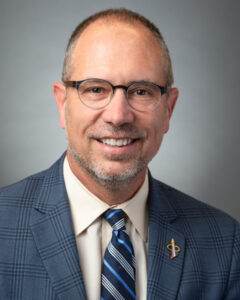
Greg Autry
Greg serves on the NSS board of directors and as the NSS Vice President of Space Development. Greg Autry is an educator, writer, technology entrepreneur and advocate for space settlement. As the Clinical Professor of Space Leadership, Policy and Business in the Thunderbird School of Global Management at Arizona State University, he researches and publishes on space commerce, entrepreneurship, technology innovation and trade policy. He teaches courses in entrepreneurship, small business management and technology commercialization. Dr. Autry is a firm believer in humankind’s future in the solar system. He has been conducting research in the New Space / commercial space industry since 2003. Dr. Autry writes and comments regularly on space topics and serves on the editorial board of the New Space Journal. He served on the NASA Agency Review Team and as interim White House Liaison to NASA during the Presidential transition. He is also a member of the Commercial Space Transportation Advisory Committee (COMSTAC) at the FAA. Dr. Autry’s insights on space and other topics have been published in major news outlets including the San Francisco Chronicle, LA Times, Washington Times, Wall Street Journal and SpaceNews. He has been featured on CNN and the BBC. He is a regular Forbes Contributor. Dr. Autry has testified to the U.S. Congress and has presented at the Canadian Parliament. He has spoken at the Heritage Foundation, the National Association of Business Economists, The National Press Club, the AIAA Space conference and the California Democratic Party Convention. Dr. Autry speaks at conferences on space, security, investments and at corporate events. Dr. Autry holds a BA in history from Cal Poly Pomona as well as an MBA and a PhD (public policy and econ) from the Merage School of Business at UC Irvine. Dr. Autry’s dissertation research studied the influences of government on entrepreneurial environments within the context of the emerging commercial space industries. Dr. Autry’s entrepreneurial ventures include: HAL Labs, a game developer that coded the Apple version of Pac-Man for Atarisoft; Dr. Micro, a PC services firm sold to CompuCom System; Wired Images, an ecommerce content creator for Planet Rx; Network Corps, a developer of healthcare enterprise applications for Kaiser Permanente; and 121C, an upcycler of aerospace carbon fiber scrap. Dr. Autry is the co-author of the book Death by China and a producer on the documentary film, Death by China, (directed by P. Navarro and narrated by Martin Sheen). Dr. Autry is a vocal critic of the appeasement of state dominated economies and totalitarian regimes. He is an unabashed advocate for global democracy, capitalism and human rights. He strongly advocates exporting the American model of economic and individual liberty around the globe and into the solar system. He supports increasing funding for exploration and development engaging both entrepreneurial and traditional approaches to space settlement.

Rebecca A. Lipe
With unique experience as an on-scene military accident investigator, public and private claims adjudicator, and litigation advocate, Ms. Lipe focuses her practice on National Transportation Safety Board (NTSB) accident response, transportation regulation, aviation and space law, unmanned aircraft systems, litigation, and related administrative proceedings. Ms. Lipe assists clients in preparing and responding to NTSB investigations for both manned and unmanned aircraft and represents clients in claims adjudication and litigation for cases stemming from accidents in state and federal court. When necessary, she guides clients in drafting responses to Department of Transportation (DOT) and Federal Aviation Administration (FAA) enforcement actions. During her time in the United States Air Force, Ms. Lipe provided worldwide support, on-scene investigation, regulatory review, and training to Aerospace, Space, and Ground Accident Investigation Boards for mishaps involving aircraft, UAS, missiles, military ground training, and space crashes. She also defended and adjudicated administrative claims and Federal Tort Claims Act litigation arising from Air Force aviation and admiralty activities worldwide. Ms. Lipe received her Bachelor of Arts degree in Political Science/Pre Law from Michigan State University, her Master’s Certificate in Aerospace and Aviation Safety from Embry Riddle Aeronautical University, and her juris doctor from the University of Mississippi School of Law with a Certificate from the Center for Remote Sensing, Air and Space Law. She is currently pursuing her Masters of Law in Air and Space Law from Ole Miss.
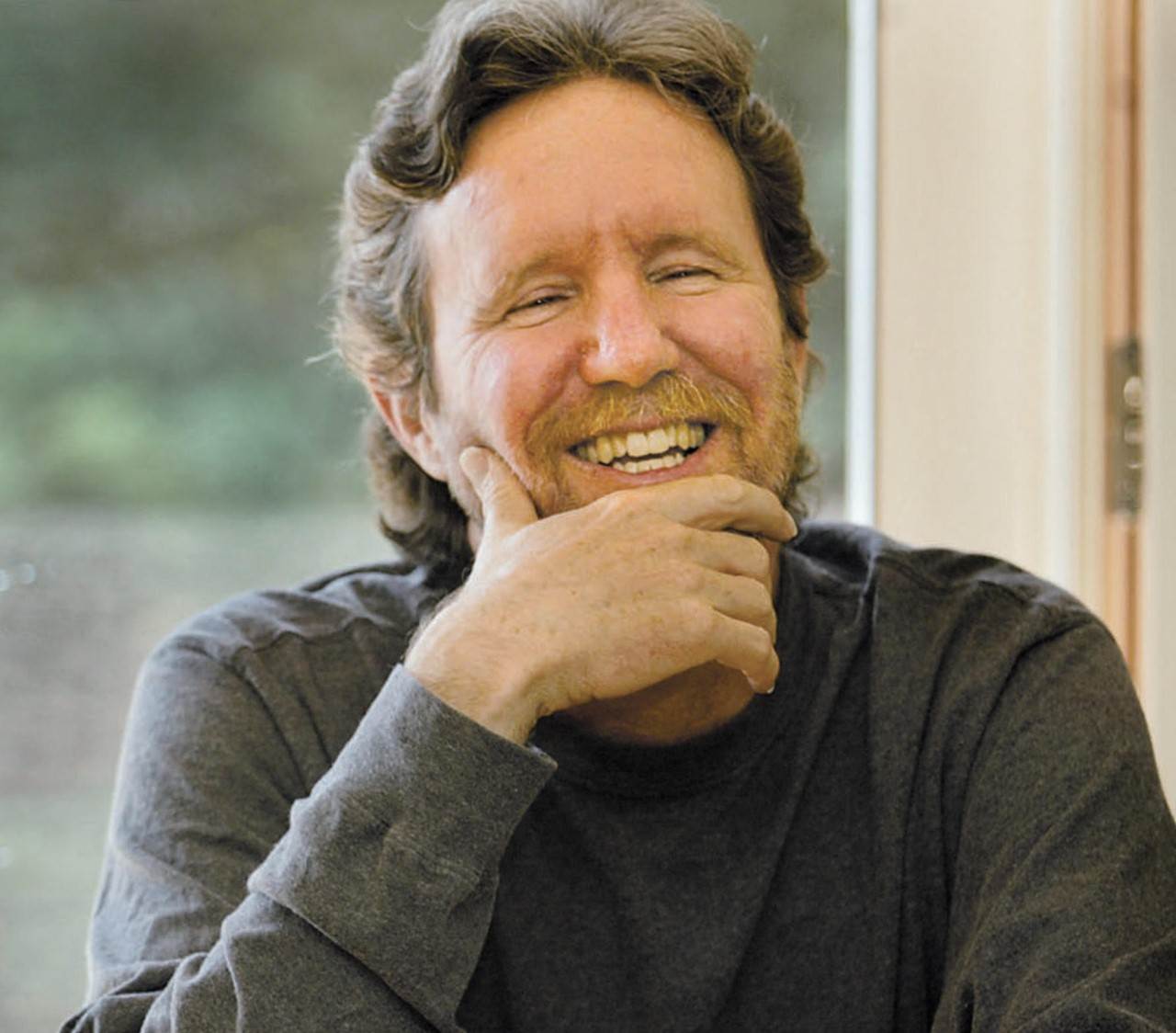
Al Globus
In 1978 Al’s life was changed when a roommate brought home a copy of CoEvolution Quarterly’s issue on space colonization. He was electrified, and immediately went to work at NASA Ames Research Center. At Ames he co-founded the NASA Ames Space Settlement Contest for 6-12th grade students. He also co-founded the NASA Ames Nanotechnology Group, which, at first, worked on materials for space elevators and diamondoid machine phase matter to build $50,000 personal spacecraft. Using genetic algorithm software he developed, he designed an antenna for TDRS-C and compared algorithms for Earth-observing satellite fleet scheduling. He did QA work on the Hubble Space Telescope and developed an operations simulator for space stations. He was able to show that operators on Earth can easily teleoperate simulated mining machinery on the Moon with a three second delay. NASA has awarded him 11 group and individual awards. He has designed three orbital space settlements (Lewis One, Kalpana One, and Kalpana Two) and published over 45 papers in technical conferences and journals, won a Feynman Prize in Nanotechnology, a NASA Software of the Year award, and a NASA Public Service Medal. He has discussed space colonization and nanotechnology on the History Channel, Danish radio, a French magazine, on a European Commission video, and elsewhere. He is co-author of the book The High Frontier: An Easier Way. He is editor in chief of the NSS Space Settlement Journal and has discovered a way to reduce the design mass of the first space settlements by two to three orders of magnitude. This is accomplished by locating settlements in equatorial low Earth orbit where there is relatively little radiation and rotating settlements (to achieve 1g at the hull) faster than earlier designs as most people adapt to rotation up to 4 rpm in a few days or less.
Part I: Perspectives on the Artemis Accords – 1PM ET
Bringing together both global and US perspectives on the rapidly expanding Artemis Accords. Featured speakers include:
- Moderator: Michelle Hanlon, NSS President, and Co-Director of the Air and Space Law Program at the University of Mississippi School of Law, and Editor-in-Chief of the Journal of Space Law
- Dr. Andrea Harrington, Interim Dean of Space Education at Air University, and former Chair of the Department of Spacepower at Air Command and Staff College.
- Memme Onwudiwe, Harvard Law, on “Africa and the Artemis Accords”
- Gabriel Swiney, the head space lawyer at the US Department of State
Part II: A Debate – Is Space Settlement a Good idea? – 3PM ET
Pits long time space settlement advocate Mark Hopkins against Daniel Deudeny, an advocate of the view that space settlement is an existential threat to humanity.
- Moderator: Anita Gale, NSS CEO
- For the Affirmative, Mark Hopkins, NSS CEO Emeritus, and former Rand Economist.
- For the Negative, Daniel Deudney, professor of political science at John’s Hopkins University and author of DARK SKIES.
Part III: The military aspects of DARK SKIES: Do they make sense? – 4PM ET
NSS has assembled a leading panel of former and active-duty military panelists to discuss this interesting topic.
- Moderator: Karlton Johnson, Chairman, NSS BOG, and Colonel, USAF, retired.
- Stan Rosen: Professor of Program Management at the Defense Acquisition University.
- Major Jeremy Grunert: Officer in the Air Force JAG Corps and Assistant Professor of Law at the US Air Force Academy
- Peter Garretson, Lt. Col., USAF, and advocate for space solar power
- Dale Skran, NSS COO, former Bell Labs
Part IV: The civilian aspects of DARK SKIES: Does the political science make sense? – 5PM ET
An examination of the thinking underlying the political aspects of DARK SKIES.
- Moderator: Michelle Hanlon, NSS President
- Claudena Skran, Professor of Government at Lawrence University, 1983 Rhodes Scholar.
- Jeff Greason, Chief Technologist at Electric Sky and Chairman of the Board for the Tau Zero Foundation, and member of the Augustine Commission
- Greg Autry, NSS VP of Space Development and Clinical Professor of Space Leadership, Policy, at Business at Arizona State University
- Rebecca Lipe: a former Air Force accident investigator, currently her legal practice focuses on NTSB accident response and aviation and space law
- Al Globus, retired NASA Ames contractor, co-author of THE HIGH FRONTIER: AN EASIER WAY and editor of the NSS Space Settlement Journal






